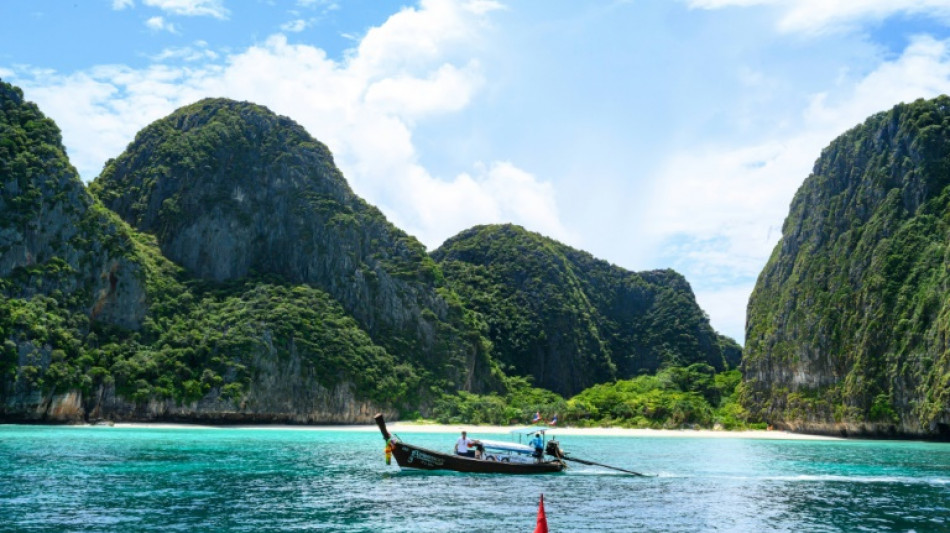

Famed Thai holiday isles suffer water shortages after heatwave
The dazzling Thai holiday islands made famous by Hollywood film "The Beach" are facing a severe water shortage following a blistering heatwave across Asia, a tourism official and locals said Thursday.
The Koh Phi Phi archipelago, off the west coast of southern Thailand, draws hundreds of thousands of visitors to its pristine beaches and turquoise waters each year.
But a deadly heatwave that has sent temperature records tumbling across the region in recent weeks -- as well as a prolonged spell of low rainfall -- has seen reservoirs run low.
"The private company that provides water to the islands may have to stop the supply," Wichupan Phukaoluan Srisanya, president of the Krabi Hotel Association, which represents hotels in the area, told AFP.
Island authorities have discussed shipping in water from the mainland if the dry weather continues, she said, but would hold off in the hope of the wet season arriving in May.
"But we want to assure tourists who are planning to visit the islands that we can manage this," Wichupan added.
Residents who asked not to be named told AFP they had suffered fresh water shortages for months, and said some hotels had limited bookings as a result.
And online posts by returning tourists warned travellers to "check if their accommodation has fresh water" ahead of their stay.
One wrote on review site TripAdvisor that "tap water has stopped running", as island water reservoirs had been dry since the end of April.
Scientists have long warned human-induced climate change will produce more frequent, longer and more intense heatwaves.
While the El Nino phenomenon is helping drive this year's exceptionally warm weather, Asia is also warming faster than the global average, according to the UN's World Meteorological Organisation.
Local tourism operators have repeatedly called for long-term water supply investments for the Koh Phi Phi islands, which lack sufficient reservoirs and infrastructure.
In the Gulf of Thailand, Koh Samui -- another hugely popular tourist island -- has been experiencing similar dry, hot weather but the local tourism board said visitors had not been impacted.
"We have enough from a water truck, but it increases the cost of running hotels by three times more," the president of Koh Samui Tourism Association Ratchaparon Poolsawadee told AFP.
The extreme recent heat has blasted Asia, triggering heatstroke deaths, school closures and desperate prayers for cooling rain.
For around a week in April, Bangkok authorities gave daily extreme heat warnings as the heat index -- which takes into account other factors including humidity -- topped 52 degrees Celsius (125 degrees Fahrenheit).
Y.Byrne--NG



